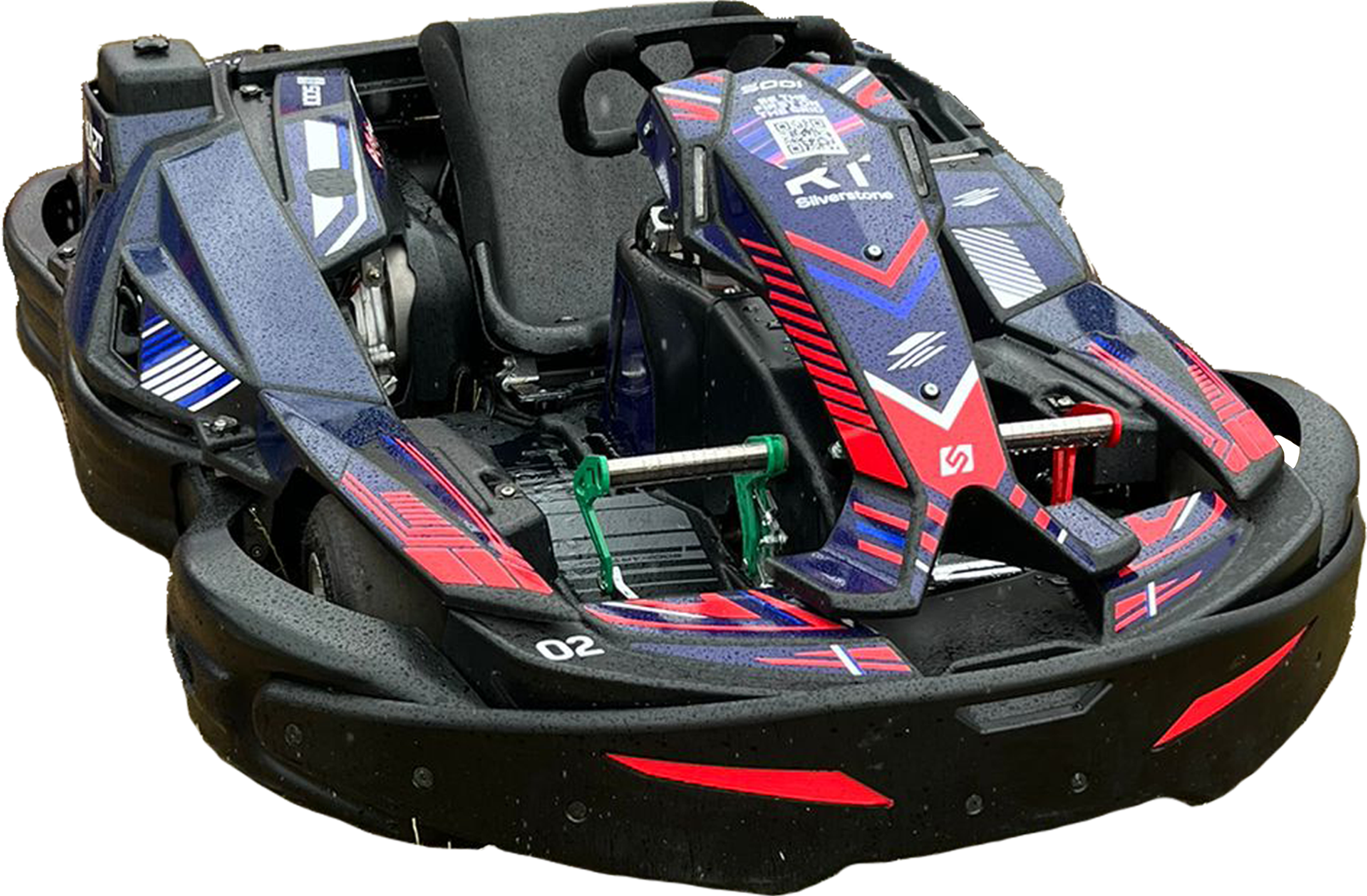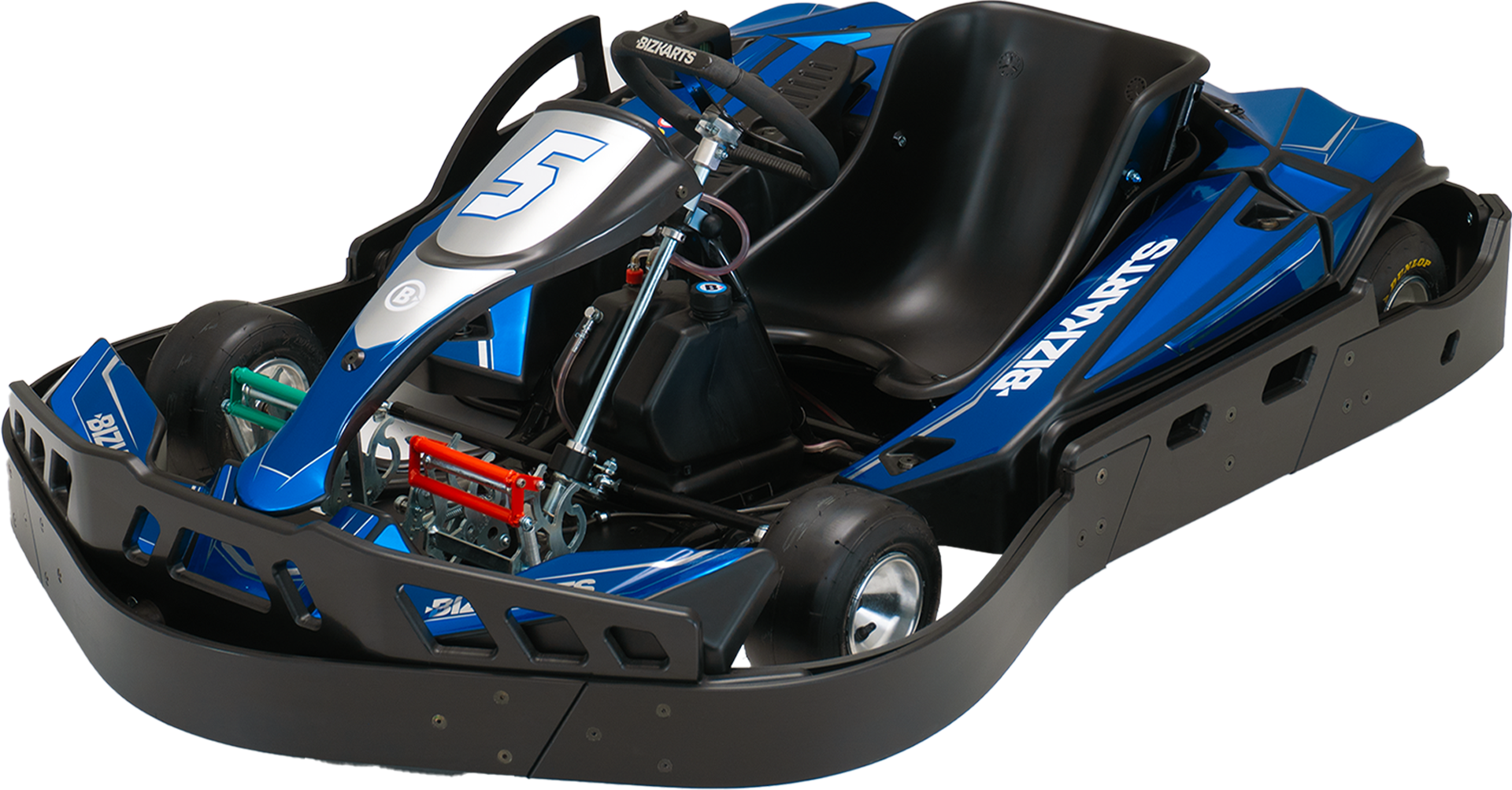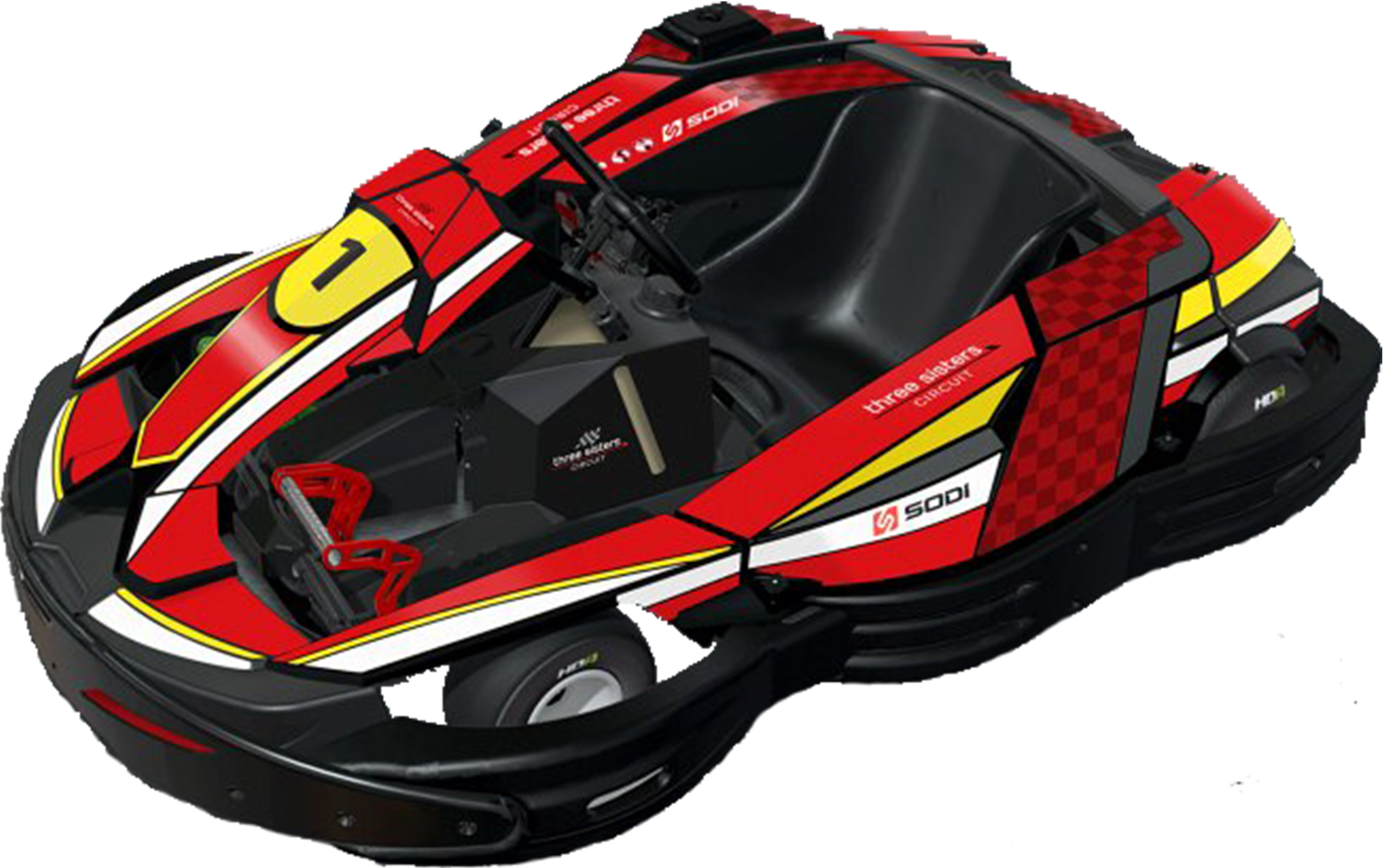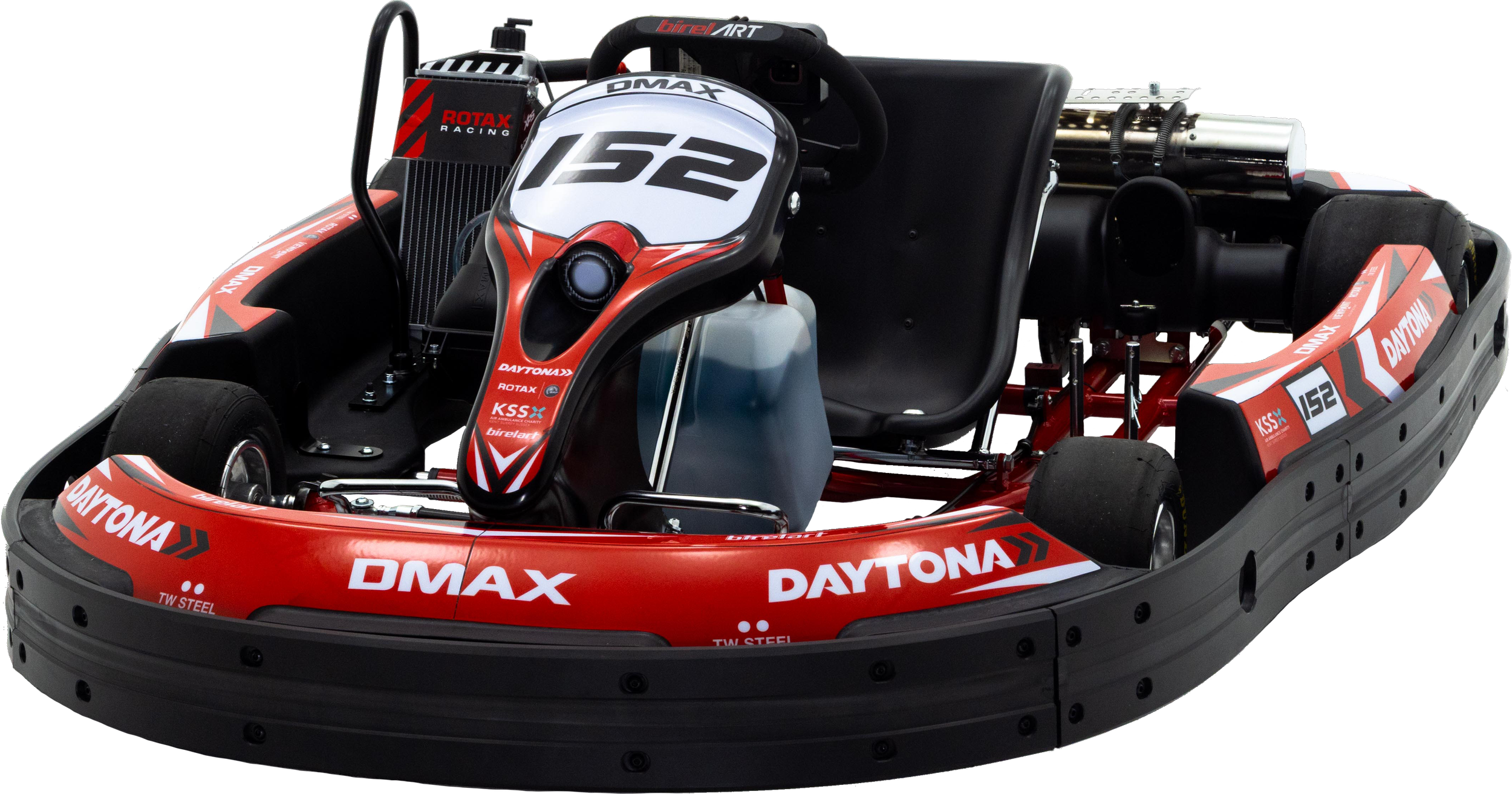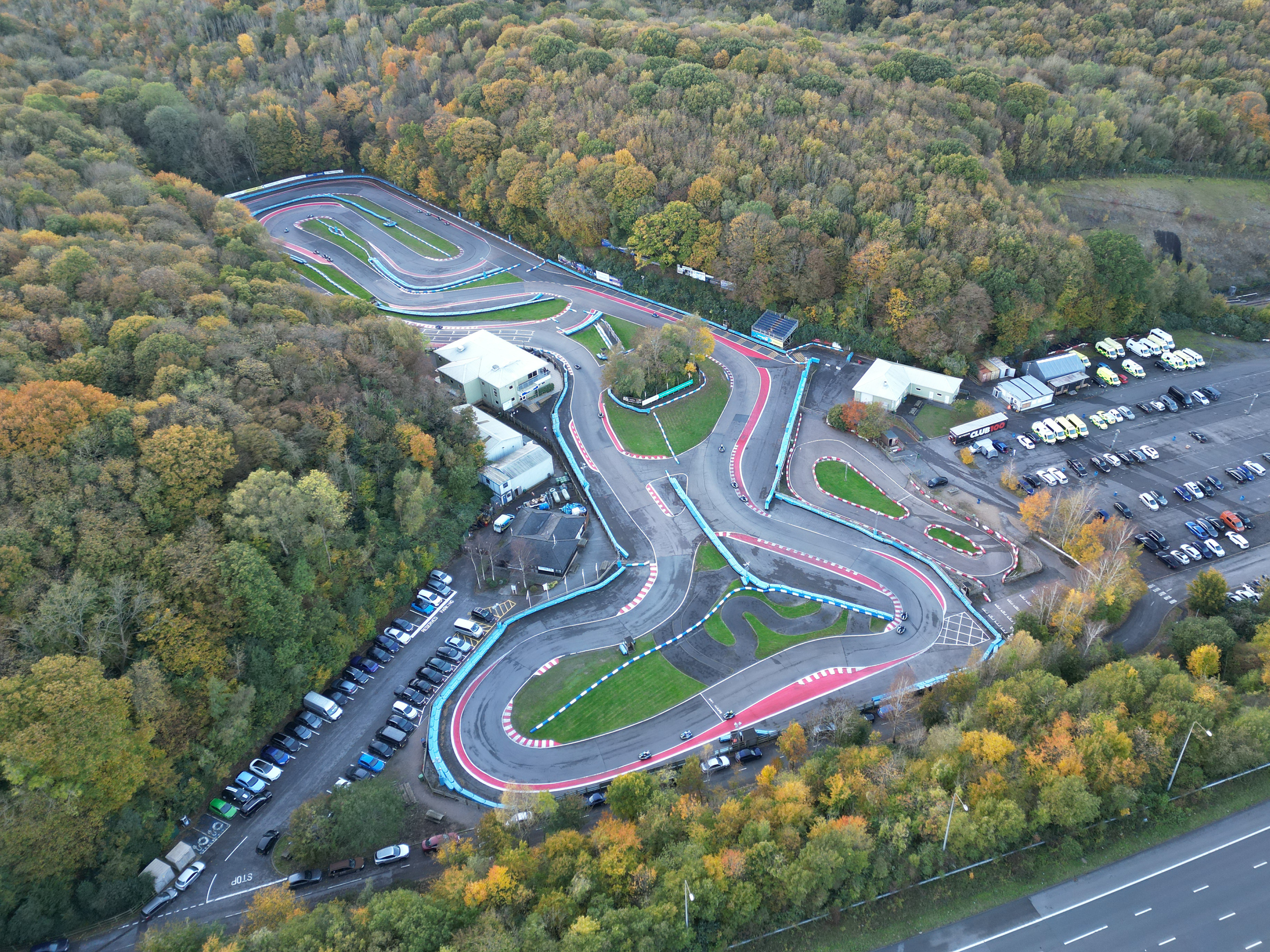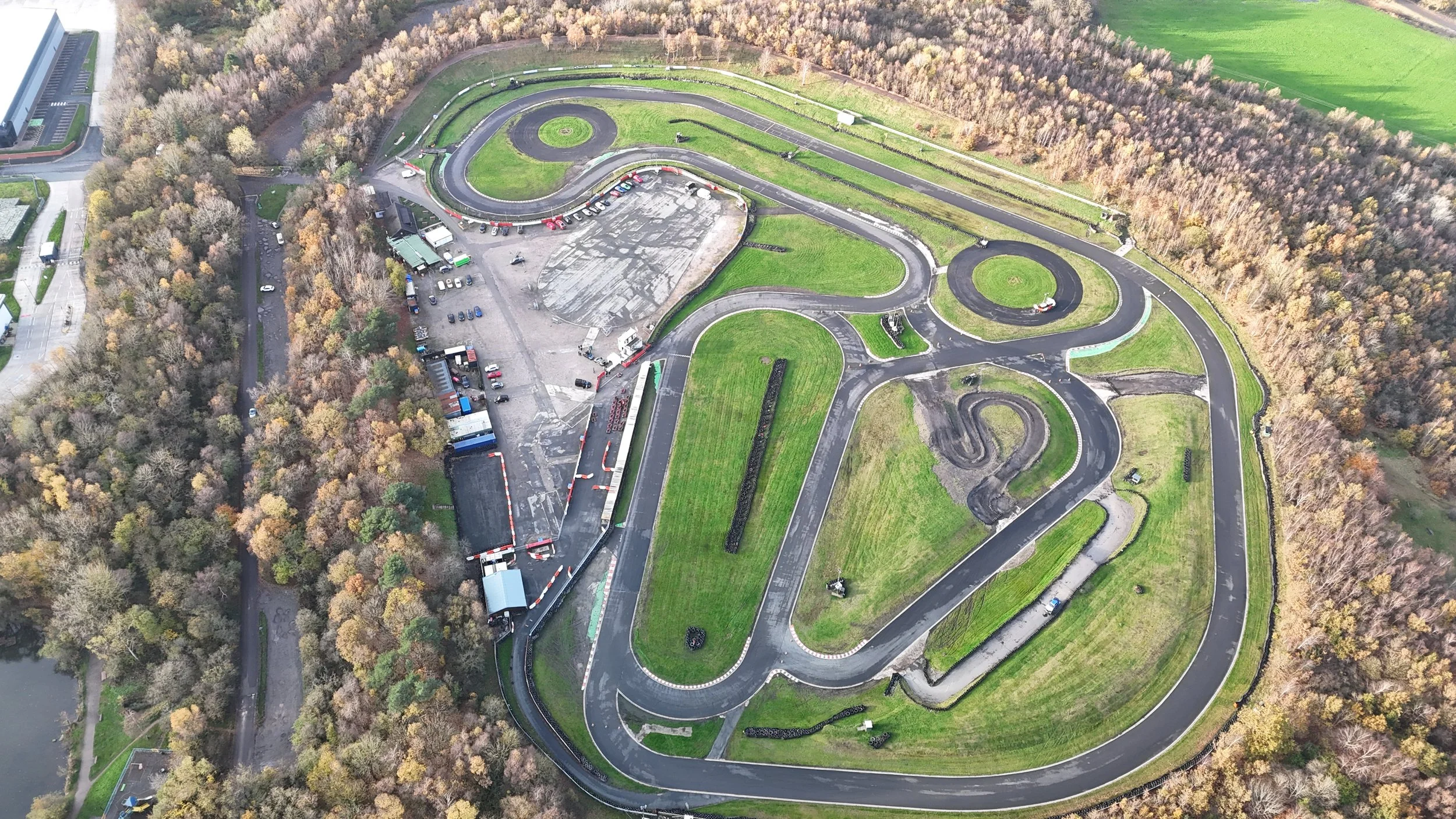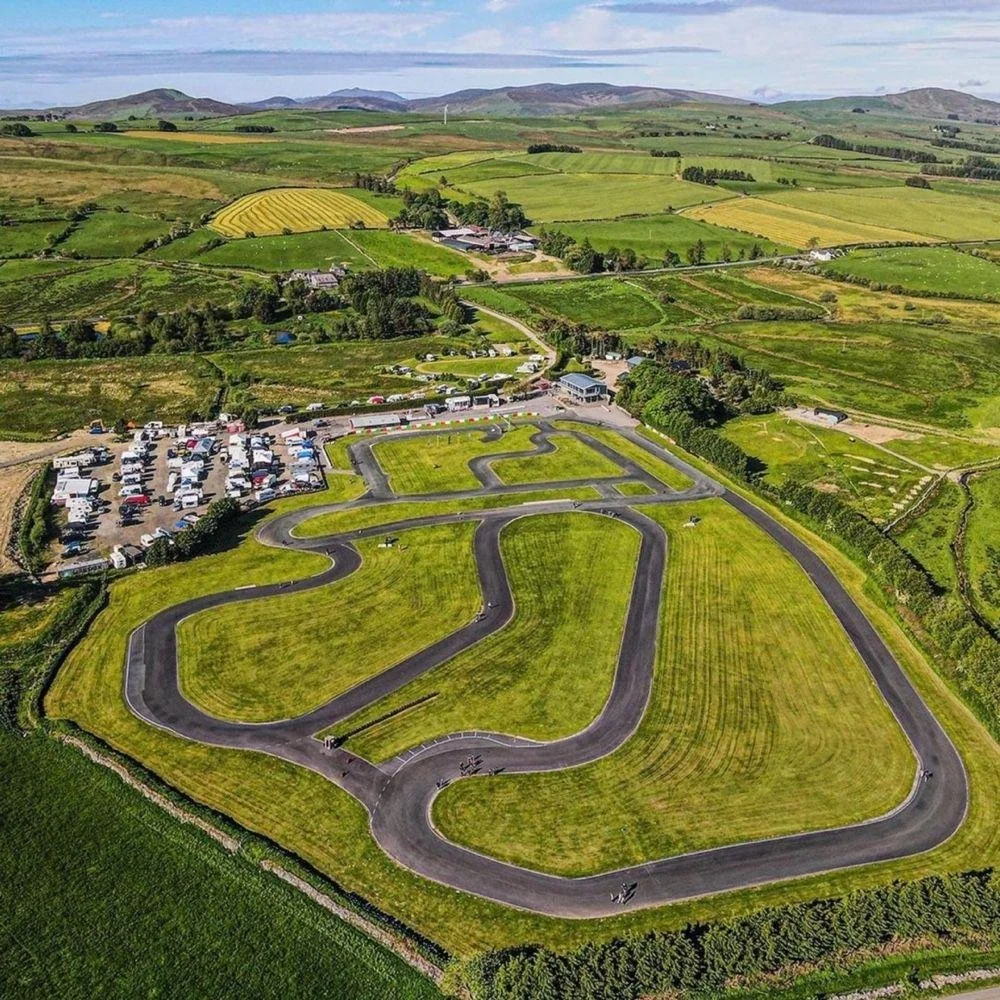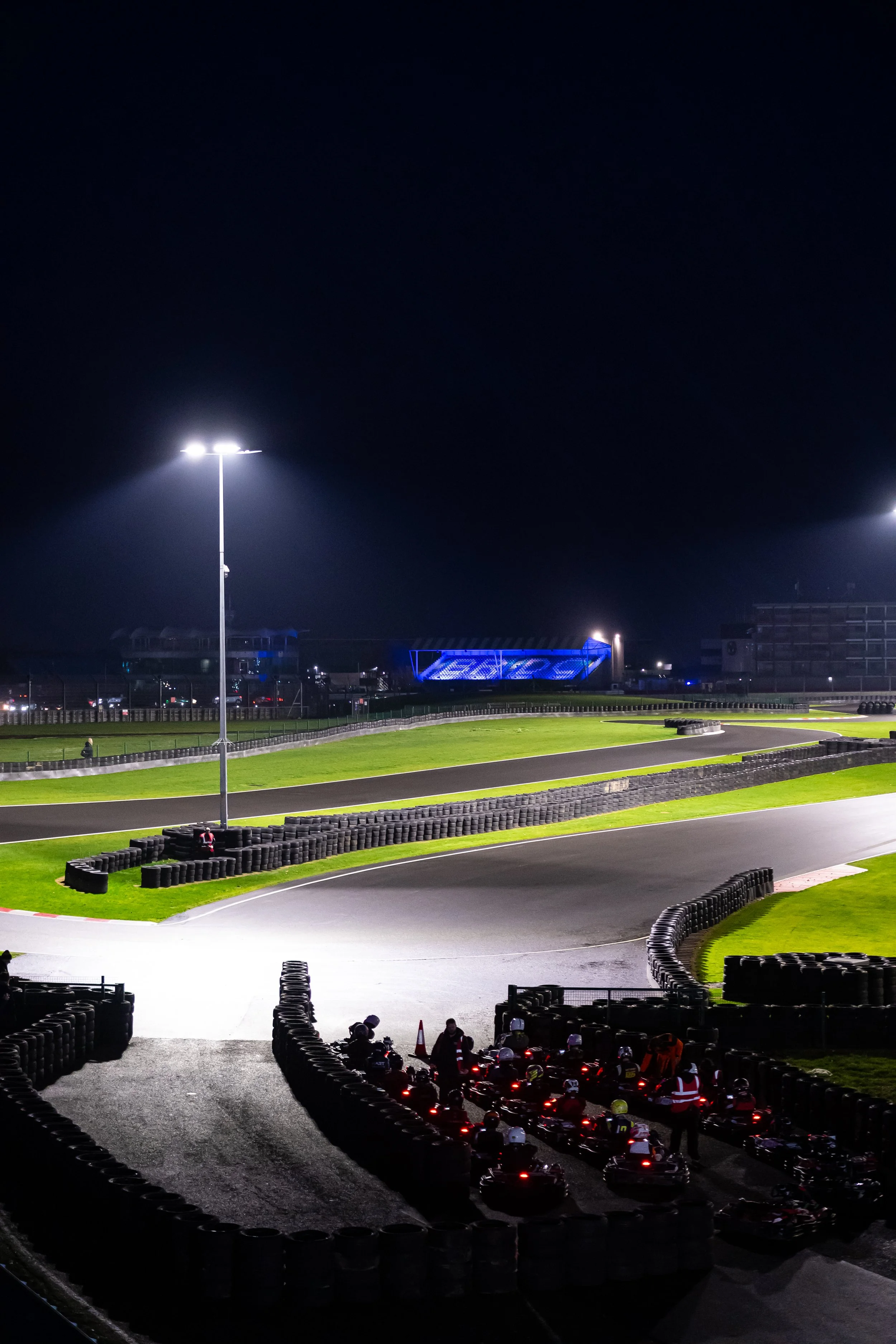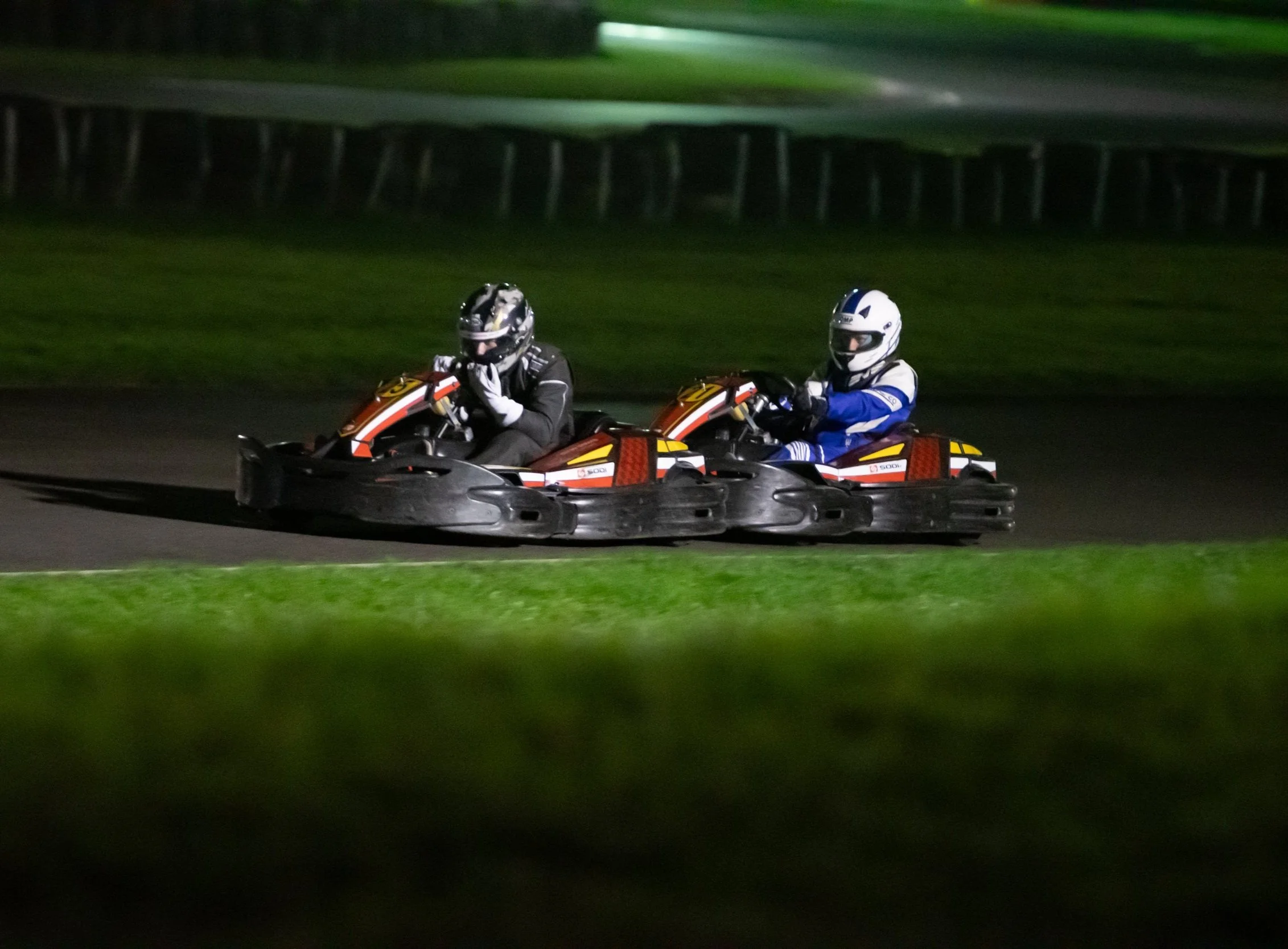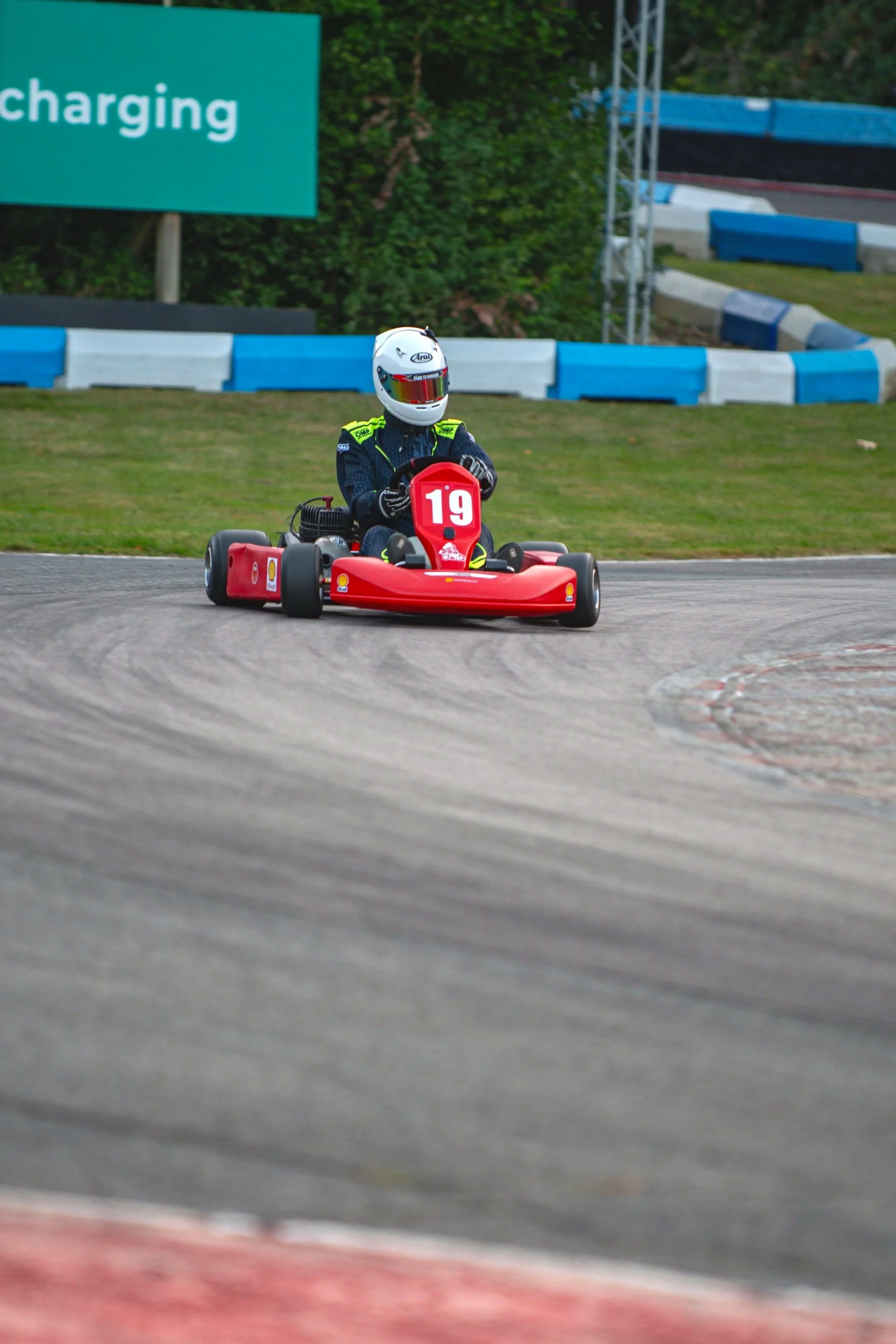Main series
Silverstone Championships
13 round national hire-karting championship & 8 round Silverstone Championship
£99 to £149
per 4-stroke round
£179
per 2-stroke round
-

EKS National Championships
The EKS National Championships consist of all 13 EKS main series events and cover the length and breadth of England and Wales.
-
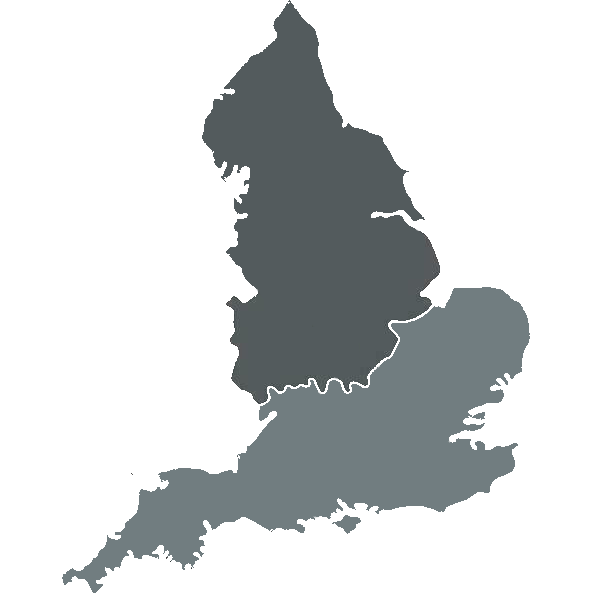
EKS Northern Championships
The EKS Northern Championships consist of 9 EKS events which are taking place in Wales and the North and Midlands of England.
-

EKS Southern Championships
The EKS Southern Championships consist of 9 EKS events which are taking place in the South and Midlands of England.
-
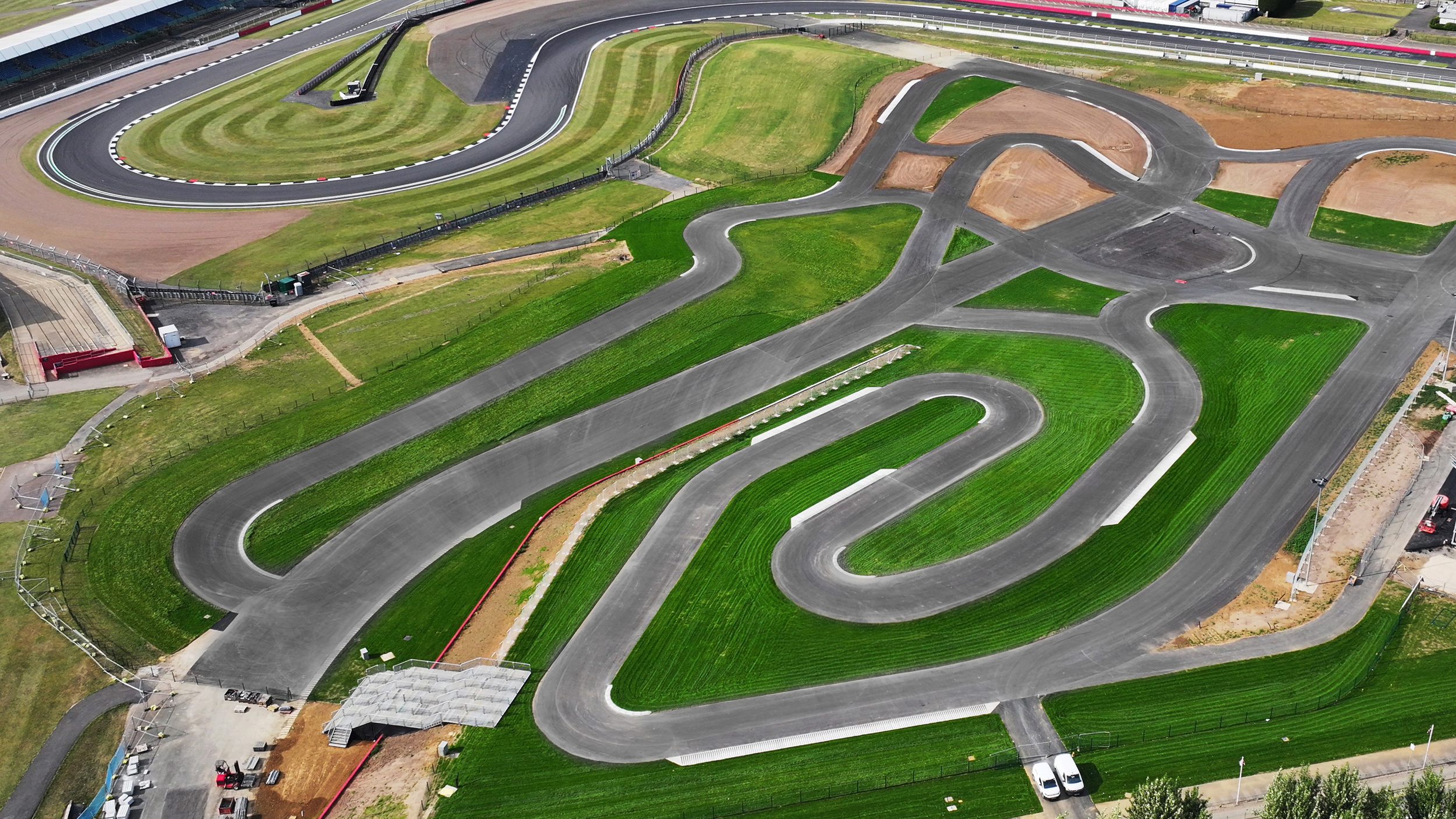
EKS Silverstone Championships
The EKS Silverstone Championships are a set of midweek championships taking place at Kart Silverstone.

4-stroke karts
The EKS races at top kart circuits dotted all around the country in 390cc and twin-engined 4-stroke karts. These karts have top speeds exceeding 50mph.
DMAX karts
The EKS also races Daytona circuits utilising their DMAX karts. These are the fastest hire-karts in the country and have top speeds exceeding 55mph.
Kart Silverstone
Location: Silverstone
Built: 2025
Length: 1377m
Corners: 16
Layouts: 5
Buckmore Park
Location: Kent
Built: 1963
Length: 1000m
Corners: 13
Layouts: 3
Three Sisters
Location: Wigan
Built: 1978
Length: 1473m
Corners: 12
Layouts: 6
Warden Law
Location: Sunderland
Built: 1996
Length: 1200m
Corners: 16
Layouts: 7
Milton Keynes
Location: Milton Keynes
Built: 1989
Length: 1360m
Corners: 24
Layouts: 7
Sandown Park
Location: Surrey
Built: 1995
Length: 900m
Corners: 9
Layouts: 5
Whilton Mill
Location: Daventry
Built: 1991
Length: 1200m
Corners: 14
Layouts: 4
Glan-y-Gors
Location: North Wales
Built: 1999
Length: 1100m
Corners: 13
Layouts: 7
PF International
Location: Grantham
Built: 1994
Length: 1350m
Corners: 14
Layouts: 4

Live radio broadcast
Every event is broadcast live in audio form via Radio EKS with broadcasts containing live commentary of every race and live driver interviews.
Post-race production
Every race is recorded using the EKS drone (weather dependant) and a trackside camera. This footage is combined together with driver interviews, timing towers and graphics to form full-race replays of every race.
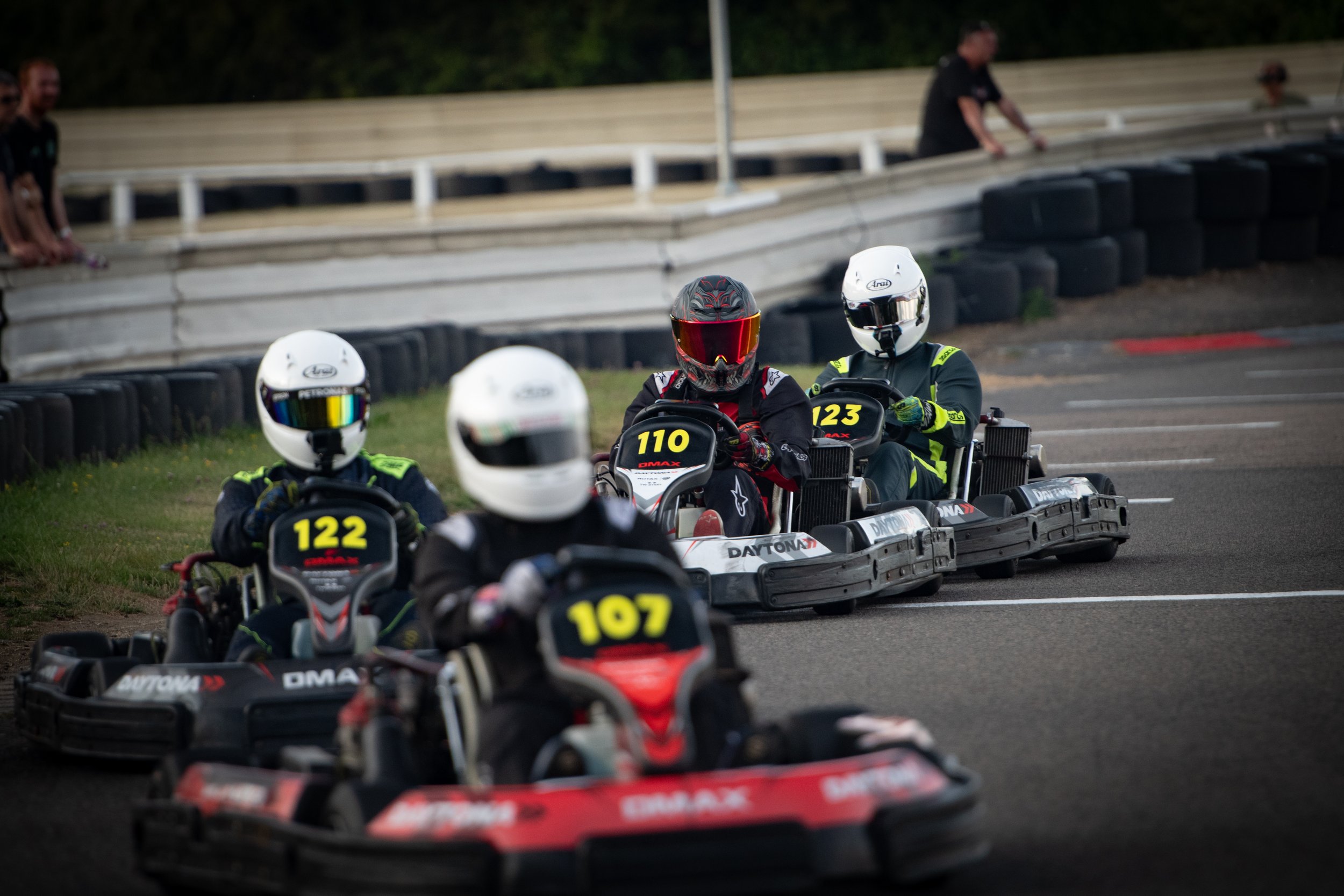
Unique formats
Main series
Three 12 minute races
Warm-Up
Qualifying
Race 1
Race 2
Race 3
9 mins
1 lap
12 mins
12 mins
12 mins
Four 8 minute races
Warm-Up
Qualifying
Race 1
Race 2
Race 3
Race 4
9 mins
1 lap
8 mins
8 mins
8 mins
8 mins
Silverstone Championships
Three 10 minute races
Warm-Up
Qualifying
Race 1
Race 2
Race 3
4 mins
1 lap
10 mins
10 mins
10 mins
Two 15 minute races
Warm-Up
Qualifying
Race 1
Race 2
4 mins
1 lap
15 mins
15 mins
Heats & Finals
Warm-Up
Heat 1
Heat 2
Heat 3
Final
5 mins
6 mins
6 mins
6 mins
12 mins

Dedicated classes
Junior (age 14-19, min 70kg)
The Junior class is strictly for drivers aged 14-19 years old and has a minimum weight of 70kg.
Lightweight (age 14+*, min 80kg)
The Lightweight class has a minimum weight of 80kg and is aimed at drivers aged 20 and upwards.
Heavyweight (age 14+*, min 90kg)
The Heavyweight class has a minimum weight of 90kg and is aimed at drivers aged 20 and upwards.
Superheavyweight (age 14+*, min 100kg)
The Heavyweight class also contains a Superheavyweight sub-class which has a minimum weight of 100kg.
*14-19 year old drivers must naturally exceed 70kg to be allowed to race in the Senior classes.
Ballast
Ballast is available to borrow free of charge at all events to help drivers reach these minimum weights and ballast can be reserved when booking in via the booking form.
Split System
Splits
At events where a class is spread across multiple grids the drivers in that class are split up based on their ability-level. This means drivers get to race against those of a similar ability level to themselves, giving all drivers a chance of fighting for victories.
Promotion
During such events, victorious drivers in lower splits are given the opportunity to be promoted to the split above midway through the event, preventing misplaced drivers from dominating lower splits and allowing drivers to be fully challenged.

Team Championships
Any driver who races in the EKS can pair up with any other driver to form a team of 2. There are no restrictions on who can pair up with who.
Like with the F1 Constructors Championship, the drivers individual point score from an event is added together with their teammates point score to give their team point score for that event.
These team scores from each event are then added together to form the National, Northern, Southern and Silverstone Team Championship standings.
End of season prize
Drivers who have finished in the top 3 of a National Championship and who have shown exemplary behaviour throughout the season will be rewarded with a drive in the EKS prize kart, a TKM kart which is actively raced in the Retro Kart TKM Championship and Access Karting 100-UK Senior Championship.
This kart is owned by the EKS and it is a 1998 Venom Ultima TKM BT82 outputting in excess of 15bhp and weighing 68kg. Combined together with the fact the engine revs to 16,000rpm, this gives the kart a top speed of 65mph allowing it to lap Buckmore Park 6 seconds faster than a hire-kart.
Chassis: 1998 Venom Ultima
Engine: 2-stroke 100cc TKM BT82
Max. Power: 15bhp @15,500rpm
Top Speed: 65mph
Tyres: Mojo D5
Dry Weight: 68kg

Appeals system
After any race, drivers can complete an EKS Appeal Form and appeal for a penalty for another driver or appeal against a penalty they have received.
These appeals are free to file and can be filed anytime up until the podium ceremony. These appeals are than reviewed approximately a week after the event by series founder Luke Battersby and Buckmore Park race director Terry Battersby.
Meet the Team














